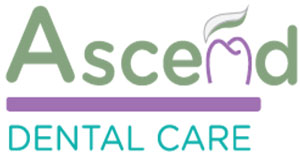Almost everyone is terrified of going to the dentist. Whether it’s for a cleaning, a filling, or even a simple whitening, it can be a pain. Just the thought of stepping inside the dental office makes most people quiver. The sounds of small drills, picking and prodding at your teeth, and thought of potential cancer-causing x-rays are haunting. While going to the dentist might feel like the worst experience of your life, have you ever thought about what your dentist wants you to know before your visit?
The benefits of X-rays outweigh the risks involved.
A lot of patients are worried that dental X-rays can cause cancer, but if you’re outside for an hour, you’re exposed to more radiation than you’d get from a full set of dental X-rays. What dentists caution is that if they don’t take an X-ray, they may miss something serious. Dental X-rays are necessary for identifying hidden dental decay – such as in the areas between teeth or beneath old fillings and crowns. They also reveal bone loss that accompanies gum disease. This information can help determine what treatments you might need. Early intervention might help save a tooth or limit the amount of required restoration. There is clearly a benefit to having X-rays. But any level of radiation poses a potential risk to patients. For that reason, dentists cautiously follow general guidelines about when X-rays should be performed.
Bleeding gums are common but should not be ignored.
Bleeding gums are very common but that doesn’t mean you should ignore them. Bleeding gums could mean that you are brushing too hard or flossing improperly. Most often, they’re a sign of gum (periodontal) disease. If treated in its early stages, periodontal disease can be easily reversed. But more advanced and severe forms of the disease can result in tooth loss, require complex long-term treatment and are associated with a higher risk of diabetes and other chronic diseases. Either way, if your gums are bleeding be sure to let your dentist know.
Chewing gum should be a part of your everyday routine.
If you have not brushed your teeth before your visit, we know. The least you can do is pop a piece of minty fresh gum into your mouth before your appointment. Yes, we are used to stinky pallets but have a little consideration. Do you like smelling people’s onion breath? We think not. A piece of gum can not only go a long way before a dental visit, it can also go a long way with everyday use. Here’s how. Clinical studies have shown that chewing sugarless gum for 20 minutes following meals can help prevent tooth decay. The chewing of sugarless gum increases the flow of saliva, which washes away food and other debris, neutralizes acids produced by bacteria in the mouth and provides disease-fighting substances throughout the mouth. Increased saliva flow also carries with it more calcium and phosphate to help strengthen tooth enamel. While we are not recommending substituting brushing and flossing, we are recommending a few pieces a day a to keep the bad breath and cavities away.
Your dream teeth may not be possible.
Dentists get plenty of patients coming in with pictures of their favorite celebrities teeth. They come in requesting that we give them picture perfect teeth, just like in the magazines. Well, let me give you a reality check. We can’t. Wondering why. Well for starters you can’t have an Angelina Jolie smile because your face doesn’t fit those teeth. Second, everyone’s teeth are shaped differently. There’s only so much shifting and shaving that we can do before we ruin perfectly good teeth. Last, unless you’re willing to pay a hefty Angelina Jolie price tag, it’s unlikely your insurance and pocketbook can cover the cost.
Know what your insurance covers before your visit.
Dental insurance assists patients in paying for the costs associated with forming and maintaining a healthy smile. Dental insurance is straightforward on coverages, deductibles and what the plan covers and exactly how much you’re expected to pay. Know the nuts and bolts of your dental insurance policy before your visits so you don’t run into any surprises.
